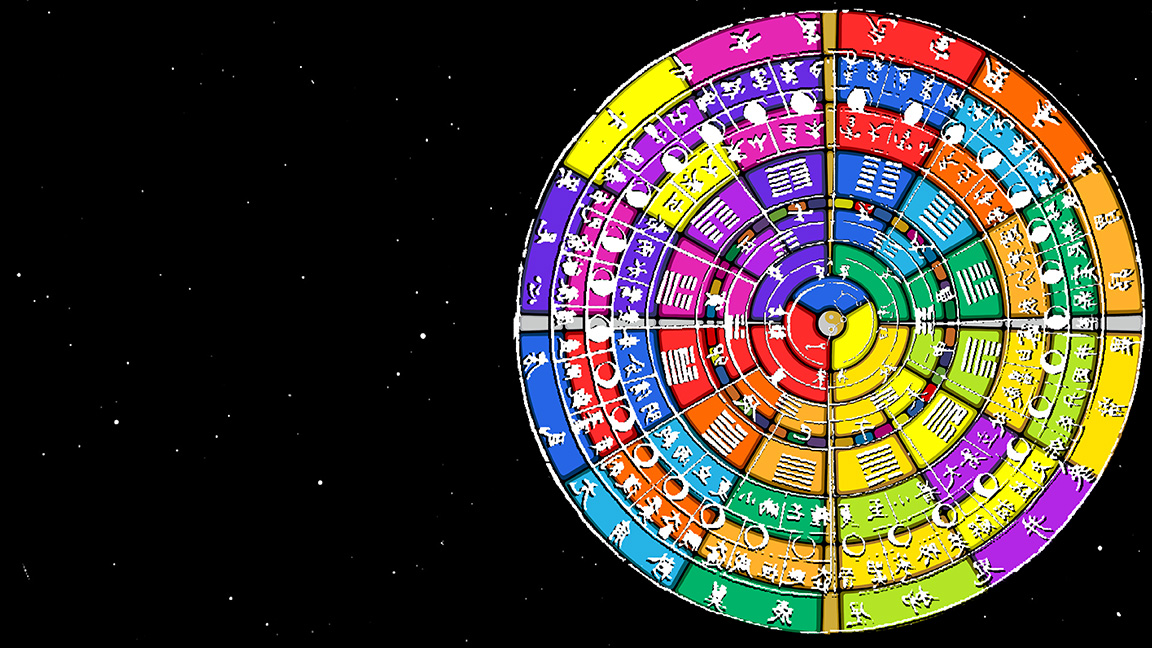

The total situation expressed by a hexagram, is often referred to as 'the time' and must be interpreted according to the character of the hexagram. Time is the framework for change and, implicitly, for the Book of Changes. Moreover, the positions of the trigrams with regard to each other should be taken into account: the lower trigram is under, inside, in the back, and its lines are considered waxing the upper trigram above, outside, in front, and its lines are considered waning. These trigrams are open for interpretation according to the different sides of their nature: their properties, images and position within the family in the Inner World Arrangement. Hexagrams should be considered as being composed of two trigrams, rather than of six individual lines. The mediator indicates changing lines, but does not distinguish between them.Old lines will change their character, and thus become the opposite, in the future hexagram.Young lines will carry the character they have in the actual hexagram into the future hexagram." Allowing for this error, the meaning would be that if the multitude assumes leadership of the army (rides in the wagon), misfortune will ensue.

The character fan, meaning "all," may have been misread as shih, which means "corpse. Perhaps the whole difficulty clears up if it is inferred that there has been an error in copying. On the basis of this custom the text is interpreted as meaning that a "corpse boy" is sitting in the wagon, or, in other words, that authority is not being exercised by the proper leaders but has been usurped by others. At burials and at sacrifices to the dead it was customary in China for the deceased to whom the sacrifice was made to be represented by a boy of the family, who sat in the dead man's place and was honored as his representative. One points to defeat because someone other than the chosen leader interferes with the command the other is similar in its general meaning, but the expression, "carries corpses in the wagon," is interpreted differently. Here we have a choice of two explanations. Perchance the army carries corpses in the wagon. If justice and perseverance are the basis of action, all goes well. But the leader must also look to it that the passion of war and the delirium of victory do not give rise to unjust acts that will not meet with general approval. Unless there is a quite definite war aim to which the people can consciously pledge themselves, the unity and strength of conviction that lead to victory will not be forthcoming. The justifying cause of a war, and clear and intelligible war aims, ought to be explained to the people by an experienced leader. Therefore it should not be resorted to rashly but, like a poisonous drug, should be used as a last recourse. But war is always a dangerous thing and brings with it destruction and devastation.
#I ching trigrams explained full
In order that he may develop his abilities he needs the complete confidence of his ruler, who must entrust him with full responsibility as long as the war lasts. It requires a strong man who captures the hearts of the people and awakens their enthusiasm. Without strict discipline nothing can be accomplished, but this discipline must not be achieved by force. An army is a mass that needs organization in order to become a fighting force.


 0 kommentar(er)
0 kommentar(er)
